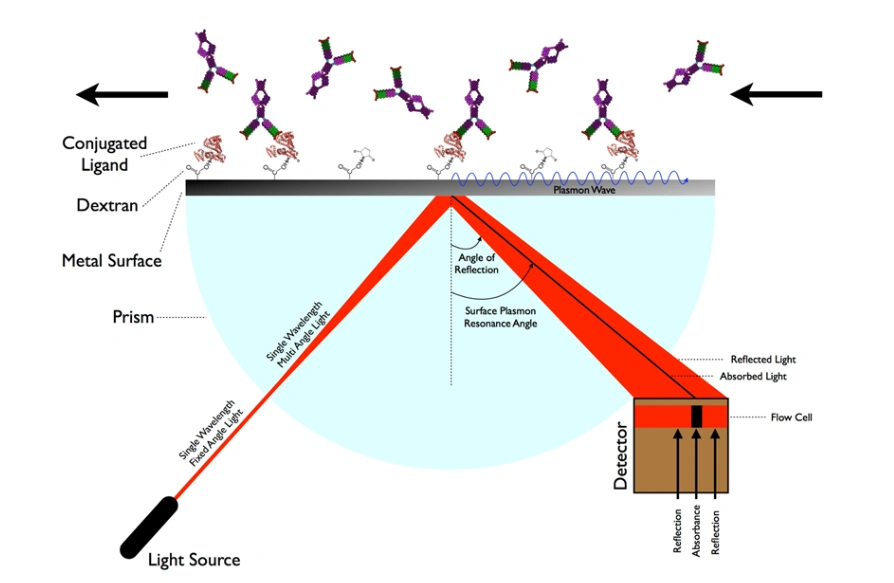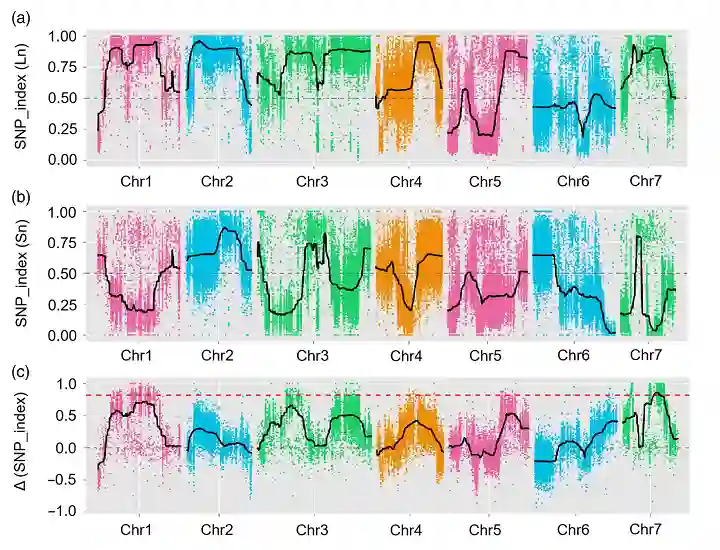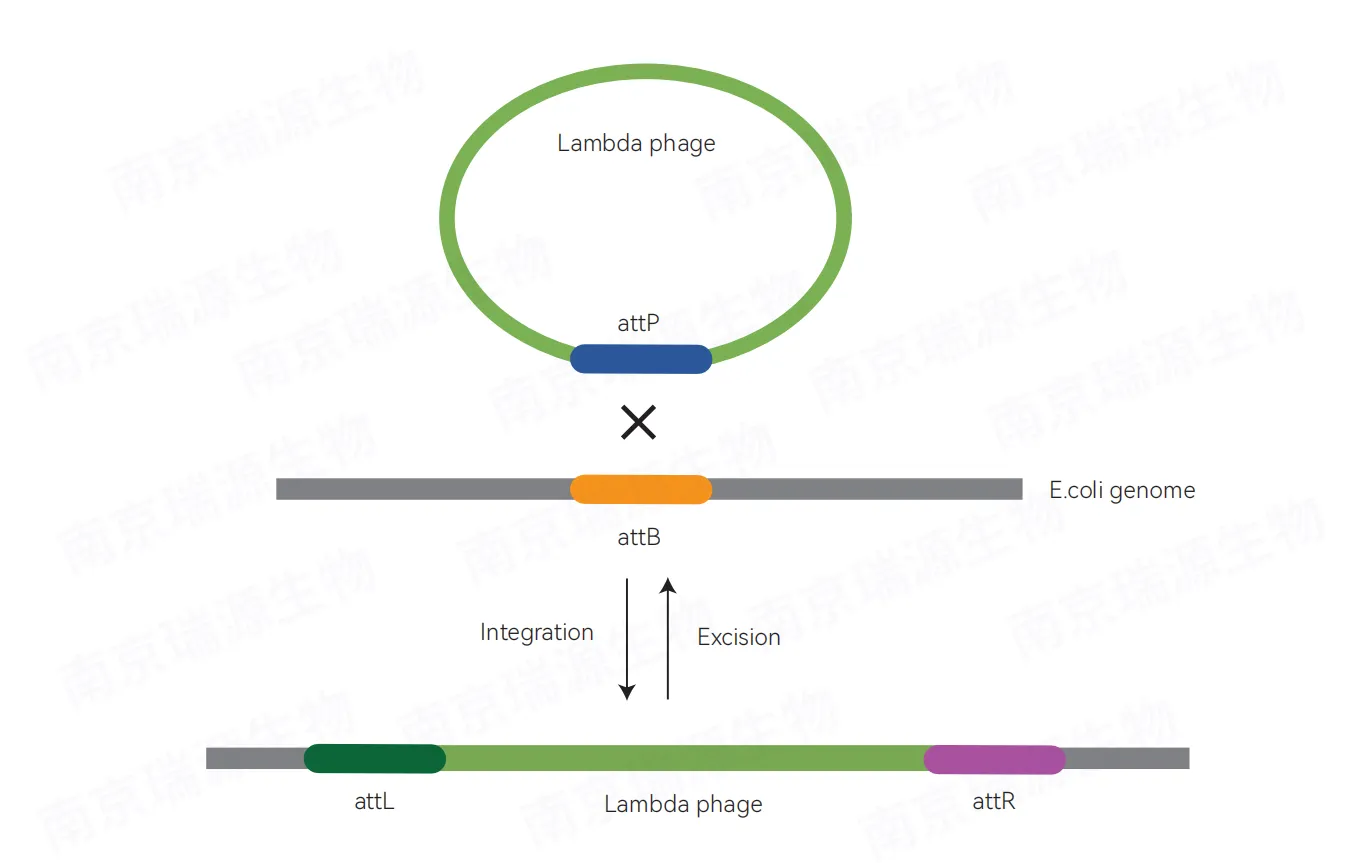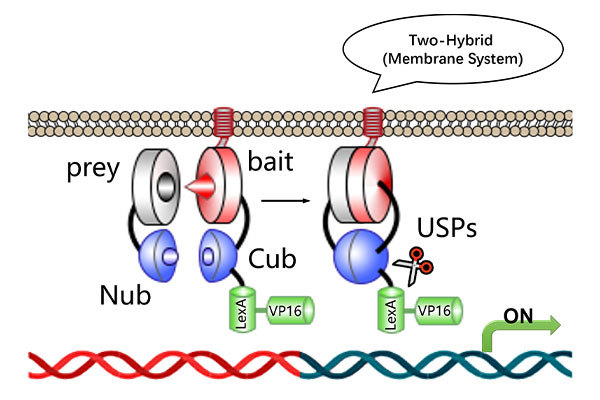Services
Providing Advanced Biological Technical Services for Researchers in Fundamental Science
Peptide Library Screening Service
Peptide Library Screening Technology for Protein-Protein Interaction (PPI) Studies
Discover High-Affinity Peptide Binders for Drug Discovery and Protein Interaction Research
At ProNet Biotech, we offer Peptide Library Screening services using advanced yeast two-hybrid (Y2H) technology to identify high-affinity peptide binders for protein-protein interactions (PPI) studies. Our high-throughput peptide screening approach helps researchers and pharmaceutical companies discover new therapeutic candidates and gain valuable insights into protein functions and disease mechanisms.
What is Peptide Library Screening?
Peptide library screening is a powerful technique used to identify peptides that can bind to specific target proteins. Our random peptide library, consisting of 6 amino acid peptides with 18 base random insertion sites, contains a capacity of up to 10^8 cfu. This large library allows for comprehensive screening to identify peptides that interact with specific protein targets, including enzymes, receptors, and antibodies.
Peptide screening has become an essential tool in drug discovery, vaccine development, and understanding protein interactions in biological systems. Our technology enables efficient identification of peptide inhibitors, which are increasingly being used to target proteins involved in diseases such as cancer and infectious diseases.
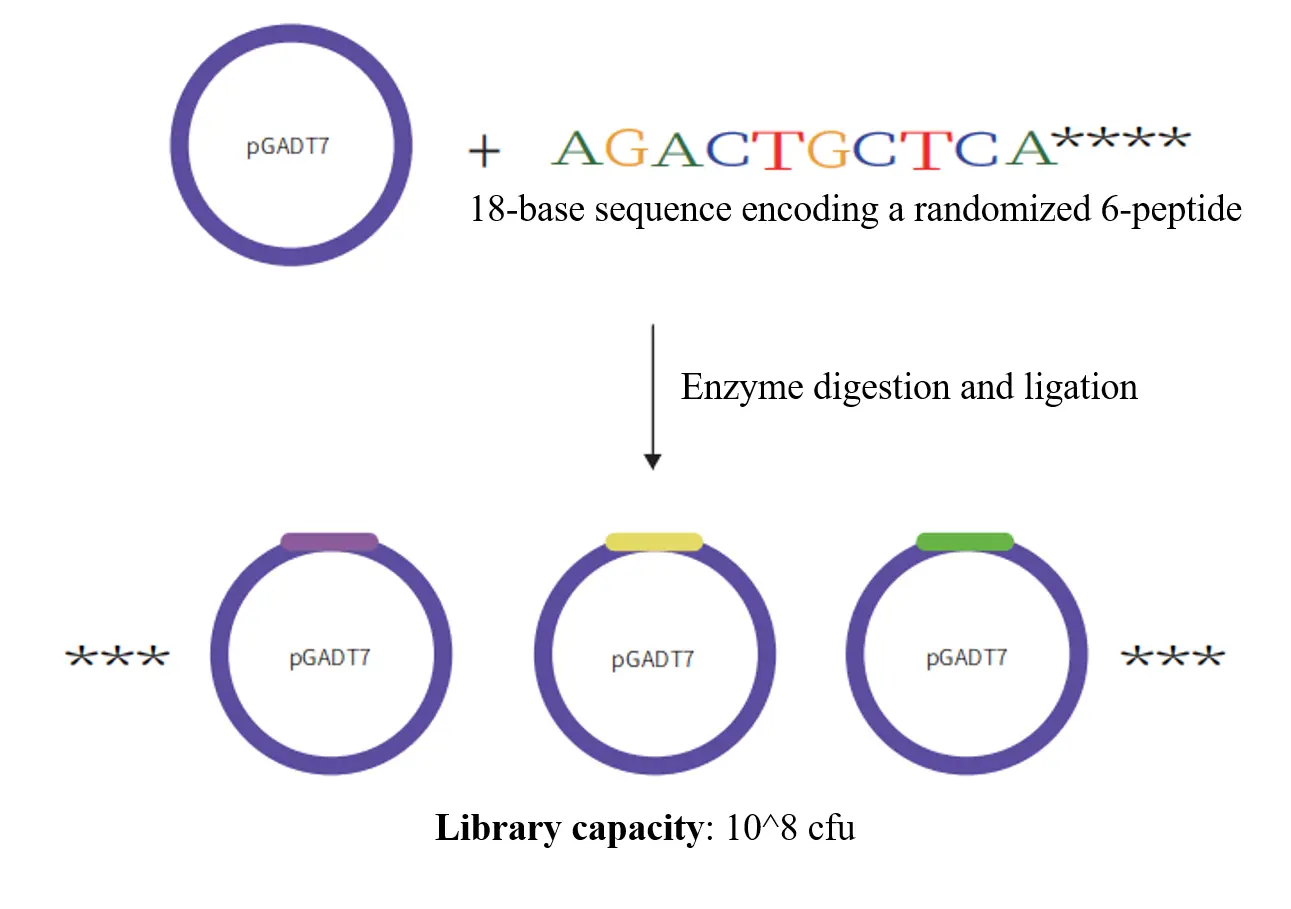
Why Choose Our Peptide Library Screening Services?
High-Throughput Screening: We utilize yeast two-hybrid (Y2H) technology to rapidly identify peptide binders, providing a high-throughput platform for large-scale screening.
Comprehensive Library Coverage: Our random peptide library covers a wide range of peptide sequences, ensuring thorough screening of potential binders.
Cost-Effective and Efficient: Compared to traditional methods like phage library screening, our approach offers comparable accuracy with lower costs, saving both time and resources.
Reduced False Positives: Our Y2H screening minimizes false-positive results, providing more reliable data for protein interaction studies.
Service Process
Step | Description | Working Days | Deliverables |
|---|---|---|---|
1. Gene Synthesis and Codon Optimization | We synthesize the gene for your target protein and optimize the codon for yeast expression. The gene is then cloned into the pGBKT7 vector. | 10 | 1. Positive Clone Sequencing Results (based on sequencing results); 2. Project Report in Word Document (including experimental data); 3. Bait Plasmid (Optional); |
2. Self-Activation of Bait Plasmid | We perform self-activation testing to ensure the bait plasmid is functional and does not self-activate before proceeding to screening. | 7 | |
3. Co-transfer Bait and Peptide Library Plasmids | The bait plasmid is co-transfected with the peptide library plasmid into yeast cells. Yeast cells are cultured in selective media for binding. | 10 | |
4. Yeast Screening and Condition Optimization | We optimize yeast screening conditions to maximize efficiency and ensure high-quality results in peptide binding. | ||
5. Sequencing of Screening Results | We sequence the yeast colonies to identify peptide sequences that bind to the target protein. | ||
6. Validation and Data Analysis | We perform rotational validation experiments and provide a complete analysis of peptide sequences and their interaction profiles. | 5 |
Total Timeline: 32 working days
Peptide Library Screening Features
Random Peptide Library: Our library is composed of peptides of 6 amino acids in length, with 18 base random insertion sites. This design ensures diversity and allows for comprehensive coverage of peptide-protein interactions.
Large Library Capacity: The peptide library can contain up to 10^8 cfu, ensuring a high probability of discovering significant peptide binders.
Customizable Library Design: We offer flexible options to design custom peptide libraries based on your specific research needs and goals.
Advantages of Peptide Library Screening with Y2H Technology
High Screening Throughput: Our technology allows for fast and efficient screening of large peptide libraries, reducing the time required to identify high-affinity peptide binders.
Lower Cost: Compared to other peptide screening methods, such as phage display, our approach is more cost-effective without compromising on accuracy.
Versatile Applications: Our peptide screening services are applicable to a wide range of research areas, including drug discovery, cancer research, and infectious disease studies.
Accurate Results: We provide high-quality, reliable data, minimizing false positives and ensuring the discovery of meaningful peptide-protein interactions.
Applications of Peptide Library Screening
Drug Discovery: Identify peptides that inhibit or enhance the activity of therapeutic targets, such as enzymes, receptors, and antibodies.
Protein-Protein Interaction Studies: Investigate the binding domains and functional interactions of proteins in various biological processes.
Vaccine Development: Discover peptides that could be used as potential vaccine candidates against infectious diseases and cancer.
Disease Mechanism Research: Gain insights into the molecular mechanisms of diseases by studying the interaction between proteins and peptides involved in disease processes.
Why ProNet Biotech?
At ProNet Biotech, we combine years of expertise in peptide library screening with cutting-edge technology to provide our clients with the most reliable and efficient peptide screening services. Our team of professionals is committed to helping you achieve your research goals and advance your studies in protein-protein interactions, drug discovery, and therapeutic development.
Contact Us Today
Ready to explore how Peptide Library Screening can help your research? Contact us today to discuss your project requirements and learn more about our services. We look forward to supporting your next breakthrough!
Disclaimer: Our services are sold for research purposes only and are not intended for diagnostic or therapeutic use!
Services Workflow

Online Consultation
01

Solution Matching
02

Service Contract
03

One-Stop-Services
04

Project Report
05
Related Products
Product Inquiry

Contact Us

Tel: +86 025-85205672

Email: info@pronetbio.com

Address: Building 3C, Nanjing Xianlin Zhigu,
Qixia District, Nanjing, Jiangsu, China, 210033

Need more info?
Let's connect!



